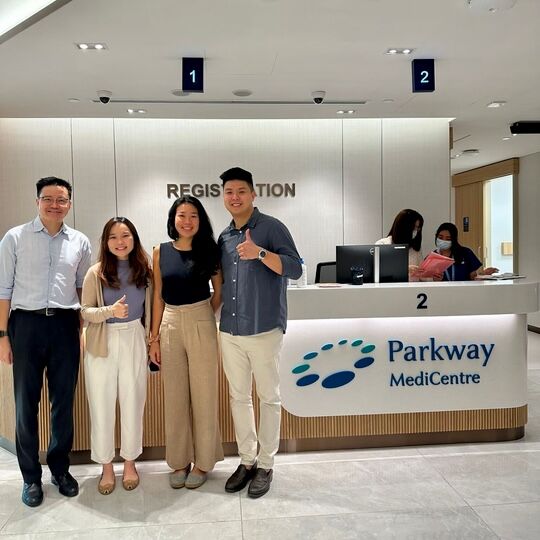We’ve all heard the myths about Attention-Deficit/Hyperactivity Disorder (ADHD) – that the condition is only experienced by children, that individuals with ADHD are “naughty”, or that they just lack discipline. Now, these misconceptions are not only untrue, but they also discount the lived experiences of individuals experiencing ADHD.
Understanding employees with ADHD
Affecting both children and adults, ADHD is – by definition – a mental health condition characterised by attention difficulties, hyperactivity, and impulsive behaviours. Three primary subtypes of ADHD are recognised:
| Combined | Most common subtype characterised by impulsive and hyperactive behaviours, inattention, and distractibility. |
| Impulsive/hyperactive | Least common subtype, characterised by impulsive and hyperactive behaviours without inattention and distractibility. |
| Inattentive/distractible | Characterised by inattention and distractibility without hyperactivity. |

While some people with ADHD experience fewer symptoms as they age, many adults need to manage them in their daily lives. In fact, adult ADHD can lead to poor work or school performance, unstable relationships, and low self-esteem on the whole.
Up to 80% of adults with ADHD also experience at least one other mental health disorder. Common ones include anxiety, mood disorders, personality disorder, substance misuse, autism spectrum disorder, dyslexia, and dyspraxia.
Challenges employees with ADHD face
ADHD can impact an individual’s performance and experience in the workplace. Manifestation varies with subtypes, coping strategies, and the nature of one’s job. Below is a non-exhaustive list of ways in which ADHD manifests in the office.
Time management
Employees with ADHD may struggle to accurately estimate the time required to complete a task. Moreover, they may feel particularly stuck when faced with cognitively demanding tasks, such as complex decision-making. Without a clear sense of priorities or deadlines, these challenges can snowball, resulting in procrastination or overwhelming emotions.
Reliability
Employees with ADHD may struggle to remember meeting times, commitments, or instructions, especially when given multiple tasks at once and without written documentation. This may lead to inconsistencies in work performance, incomplete task execution, or careless mistakes.
This is exacerbated when tasks are monotonous, repetitive, or lacking in personal interest to the employee (filing, for instance, may seem tedious and boring). At times, they may initiate a task only to be thrown off course by distractions they perceive to be more engaging.

Relationships
Difficulties with attendance, punctuality, and focus may cause employees with ADHD to come across as impolite or lacking in diligence. This hinders the development of positive workplace relationships and may culminate in the implementation of a Performance Improvement Plan (PIP).
Consequently, their confidence at work may be eroded, with employees with ADHD feeling frustrated and lousy about themselves. Discouraged, some of them may even resign from jobs they care about.
Strengths of employees with ADHD
Challenges aside, there are also strengths that employees with ADHD bring to the team. These include:
Creativity
Often, employees with ADHD often have a knack for thinking out of the box and generating innovative ideas. Their minds are wired to make unique connections between seemingly unrelated concepts, introducing new ideas to the workplace.
In a study conducted among college students, individuals with ADHD demonstrated high divergent thinking and scored higher in originality, novelty, and flexibility on a given task, compared to peers without ADHD. The conclusion? ADHD was found to be positively associated with specific aspects of innovative thinking.
Problem-solving skills
Since employees with ADHD are known to think creatively, they are able to approach challenges with a fresh perspective and explore alternative solutions to complex issues.
In a separate study examining how individuals with ADHD fared across ten neuropsychological function domains compared to peers without ADHD, little discrepancy was observed in domains including visual problem solving.
Hyper-focus
While employees with ADHD may struggle with focusing on certain tasks, they are capable of exceptional concentration on those that capture their interest.

In a study of “successful adults with ADHD”, participants associated their ability to hyper-focus with productivity and a state of “flow”. The latter was defined by Hungarian-American psychologist Csikszentmihályi as a state of intense concentration, energised attention, and complete absorption in an activity that “produces intense feelings of enjoyment.”
Energy
The same study also saw participants attributing an “abundance of energy” to their ADHD, perceiving it as a positive aspect of the condition, and expressing a desire to harness it for productive ends. Channelled effectively, this energy could very well translate to exuberance (participants reported “feeling younger than their peers and being able to engage in different activities”) or motivation in the workplace.
Courage
Last but certainly not least, individuals with ADHD have also reported being curious of the unknown and unafraid to embark on new ventures. A study revealed that courage is seen as a resource among adults with ADHD and associated with feelings of self-efficacy and self-esteem.
Working life is rife with opportunities in the guise of challenges, and such an openness to new experiences can prove invaluable to the development of employees with ADHD and, in turn, their organisations.

What business leaders and HR can do
Embracing neurodiversity, rather than labelling differences as problems, paves the way for an inclusive society. In the workplace, the unique perspectives associated with neurodiversity could very well be a business’s secret sauce for innovation.
To help employees with ADHD excel at work, it is crucial to recognise their needs and offer the right assistance. Here are some strategies for business and HR leaders.
Business leaders
1. Identify unconscious biases through DEI coaching and examining their impact on policies. Read more about improving systemic DEI on an organisational level here.
2. Introduce training and awareness programs to foster understanding and acceptance of neurodiversity, including ADHD. This promotes a culture where differences are embraced rather than tolerated.
3. Invest in coaching for your managers so they may pick up practical strategies to help neurodivergent employees thrive at work. These may include providing constructive feedback, setting realistic expectations, and evaluating their performance.
4. Encourage managers to reach out to neurodivergent team members and learn about the accommodations they may need to perform at work. For example, some individuals with ADHD may prefer a quiet environment that is free of distractions to an open-concept office.
HR leaders
1. Adopt hiring practices that prioritise skills over degrees and work history to level the playing field.
2. Review hiring material, such as the company’s careers page and job descriptions, to ensure inclusive language.
3. Allowing neurodivergent employees to have a flexible work schedule that accommodates their needs.

What managers can do
1. Create a structured work environment
Line managers can establish clear expectations and deadlines for tasks. Providing a roadmap for the day or week can help the employee prioritise their responsibilities. Structured work environments reduce uncertainty and anxiety, allowing individuals with ADHD to focus more effectively on their tasks.
(While some employees may benefit from more structured routines, others might require additional flexibility. Understanding and respecting these differences is key to effective management.)
2. Encourage regular breaks
Managers can encourage short breaks throughout the day to help reduce stress and improve concentration. These breaks offer a chance to recharge and refocus, enabling the employee to maintain productivity and prevent burnout.
3. Provide positive reinforcement
It is good practice for managers to consistently acknowledge employees with ADHD for their accomplishments and contributions to the team. This boosts their confidence and encourages continued effort and commitment to the team’s goals.
4. Present knowledge in different ways
Adopting multimodal, auditory, or visual methods in a structured and interesting manner improves encoding and consolidating memory processes. For instance, one may use calendars, to-do lists, and reminders to help employees with ADHD stay on top of their deadlines. top of their responsibilities and deadlines.

What team members can do
You don’t have to be a decision-maker to make a difference. Co-workers can help by communicating:
1. Openly
Engage in transparent and respectful communication about work preferences, expectations, and challenges. Co-workers can encourage each other to share their needs and any accommodations that may help them perform at their best. Listen actively to your coworker’s concerns and avoid interruption that may stop them from expressing themselves fully.
2. Clearly
When collaborating, provide clear instructions and avoid ambiguous language. For instance, instead of saying “we need to get this done as soon as possible” or “get back to me ASAP”, specifying a deadline may be helpful. You may also use bullet points, lists, or summaries in written communication to make the information more digestible.
Enter the Intellect Clinic
Employees with ADHD, or individuals who suspect they may have ADHD, don’t have to do this alone. Whether you need someone to talk to or better understand your condition, our clinical psychologists at Intellect are trained to provide a range of diagnostic assessments, counselling, and psychotherapy services. ADHD is among the team’s specialisations, and you can see the full list here.
If you’re based in Singapore, you’d be happy to know that Intellect Clinic is located in two central locations: Tanjong Pagar and Parkway Medicentre at Woodleigh Mall.

Learn more about Intellect Clinic and the people behind it here.








